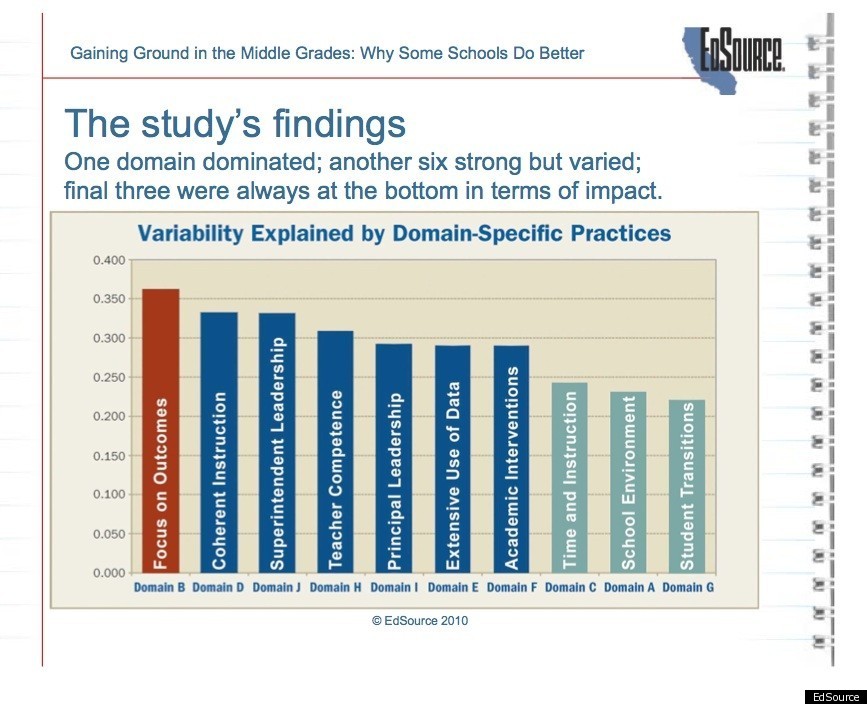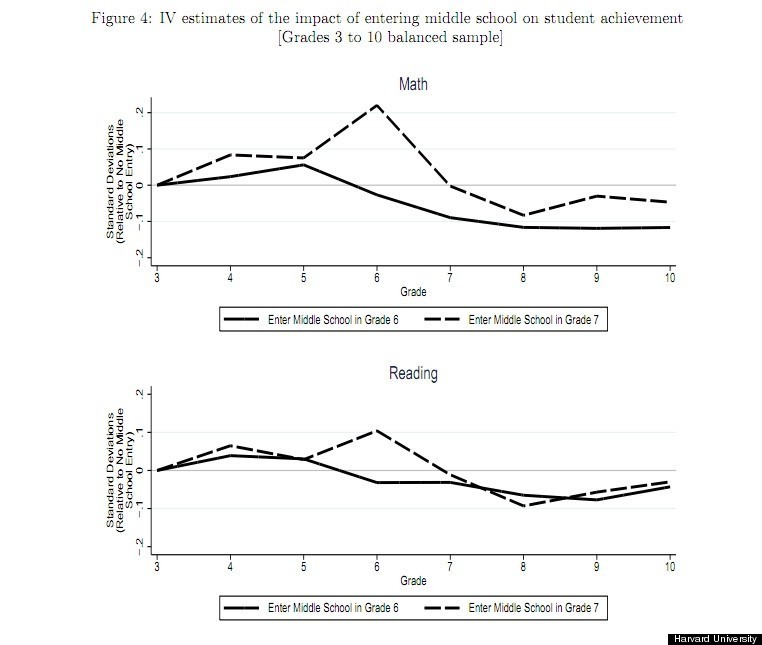
The idea that hormonally-challenged young teens need a school of their own between elementary and high school turns out to be bad academic policy, according to a new study from Harvard University. Compared with students who attended kindergarten-through-eighth-grade schools, middle school students did worse on math and English language arts in high school, and were more likely to drop out.
Researchers analyzed data for all 3rd through 10th grade students in Florida public schools from the 2000-2001 academic year to 2008-2009 - more than 450,000 students. They used Florida because the state"s student data system is the most extensive in the nation, following students from kindergarten through college, using unique identifiers to protect privacy.
The report poses a noteworthy juxtaposition to "Gaining Ground in the Middle Grades," a large 2010 California study by EdSource and Stanford University that examined the practices and policies of top-performing middle grades programs, whether they"re within a K-8 school or in a separate middle school. "Gaining Ground" studied 303 middle grades schools and surveyed more than 4,000 principals, superintendents, and math and English language arts teachers. It found "no clear association between grade configuration ... and higher school performance on standards-based tests."
 Most significant policies and practices for middle school succes.
Most significant policies and practices for middle school succes.
Matt Rosin of EdSource, the senior research associate on the project, said the findings painted a clear picture of what sets apart higher performing middle schools. "In everyday ways they were more intense and intentional about accepting and sharing accountability for results and setting measurable achievement objectives," said Rosin.
But results of the Harvard study seem to suggest that the best middle school reform would be to close them down and put the students into a K-8 environment.
"We know there are high performing middle schools that are doing a great job, but that doesn"t mean that the choice of grade configuration is irrelevant," said Martin West, an associate professor at the Harvard Graduate School of Education and co-author of the Florida study. "We find pretty compelling evidence that the transition itself does have substantial costs in terms of student achievement."
That evidence is disquieting.
- Students who finish elementary school in 5th grade and move to middle school experience a significant decline in math and English language scores that continues into high school.
- Even though middle school students enter 6th grade doing better than their K-8 counterparts, that advantage is reversed by 10th grade.
- Florida students who attended middle schools were 18 percent more likely to drop out of high school than K-8 students.
- High school absenteeism is higher for middle school students than K-8 students.
 Impact of middle school on student achievement to grade 10.
Impact of middle school on student achievement to grade 10.
The Harvard study doesn"t have all the answers. One of its conclusions is that "more research is needed to explain the negative effects of middle schools." Few people disagree with that. Just last summer, at the National Forum"s Schools to Watch Conference, U.S. Education Secretary Arne Duncan remarked that "the middle grade years have sometimes been called the "Bermuda Triangle" of K-12 education" because too often they"re a time where students "sink or swim."
At the same meeting, however, Duncan had strong praise for the EdSource/Stanford study for providing clear direction for improving middle schools. Stanford Professor Edward Haertel, the study"s technical director, said the Harvard evidence seems credible, and he doesn"t see a contradiction or connection between the two. "We didn"t look at movement to high school at all, and we weren"t focusing on transitions," Haertel said.
Harvard"s West acknowledged that it"s still not clear what it is about the transition to middle school and the middle school environment that"s causing student achievement to fall. So he had some slightly equivocal advice for middle schools.
"I don"t think we understand what"s causing the problem well enough to mitigate it," said West. "That being said, they should make efforts to actively do things."
Kathryn Baron is a co-writer of TOPed.org, a blog on California education policy. Read more of her work and more at www.toped.org.